Navigation
Install the app
How to install the app on iOS
Follow along with the video below to see how to install our site as a web app on your home screen.

Note: This feature currently requires accessing the site using the built-in Safari browser.
More options
You are using an out of date browser. It may not display this or other websites correctly.
You should upgrade or use an alternative browser.
You should upgrade or use an alternative browser.
Canon eos t3i?
- Thread starter Smith1988
- Start date
ronlane
What's next?
- Joined
- Aug 3, 2012
- Messages
- 10,224
- Reaction score
- 4,961
- Location
- Mustang Oklahoma
- Website
- www.lane-images.com
- Can others edit my Photos
- Photos OK to edit
I would not consider it a professional camera. It is at the high end of the entry level market. For Canon, the professional models are in increasing order the 7D, 6D, 5D mk II, 5D mk III, and the 1D. All of these are full frame except the 7D.
The T#i model is the entry level and the 60D and soon to be 70D are the mid-level.
All are nice when paired with good glass. I have the T3i and it has been a really good camera. I am wanting to upgrade to either the 70D or the 6D however.
The T#i model is the entry level and the 60D and soon to be 70D are the mid-level.
All are nice when paired with good glass. I have the T3i and it has been a really good camera. I am wanting to upgrade to either the 70D or the 6D however.
- Joined
- Dec 16, 2003
- Messages
- 33,896
- Reaction score
- 1,853
- Location
- Edmonton
- Website
- www.mikehodson.ca
- Can others edit my Photos
- Photos NOT OK to edit
Welcome to the forum.
Not that I particularity want to open this can of worms...but a professional camera is one that is in the hands of a professional photographer. The T3i is more than capable of producing 'professional images' (whatever that actually means).....especially when used with good quality lenses.
But as mentioned, the T3i (and the rest of the Canon Rebel series) are considered to be 'entry level' or 'consumer' in the DSLR world.
The line up can be confusing...but I'd say that there are 4-5 levels of DSLR from Canon.
First is the very lowest, T3. Made to be cheap and affordable but lacking some features of the higher cameras. Then there is the traditional Rebel series (T2i, T3i, T4i, T5i). Good image quality and some good features, but the bodies are small(ish) and mostly made of plastic type materials and more importantly, they have fewer external controls, which means that you have to go into the menus more often. Also, they only have one dial, so when in manual mode, you have to press a button while scrolling the dial, in order to change the aperture.
The next level is often called 'Prosumer' (half way between pro and consumer). These are 20D, 30D, 40D, 50D, 60D, 70D. They have the same sensors as the Rebels but they have bigger bodies with more external controls. Up to the 50D, they had a metal chassis and were a little bigger, but the 60D stepped down a little bit. These cameras have two dials, making shooting in manual an easier task.
The next level(s) are starting to be considered 'pro' cameras. The 7D has the same sensor as some of the lower cameras, but a much more advanced AF system.
The 6D, and the 5D series have 'full frame' sensors which typically allow for better image quality, especially at higher ISO. The bodies and features are similar to the prosumer cameras.
Lastly there are the true 'professional' cameras...the 1D series. There were two lines, the 1D and the 1Ds...but they are being amalgamated into the 1Dx. These cameras are much bigger, with lots of external controls. They have features like duel card slots, top of the line AF and the bodies are durable and well sealed against the elements. So if someone was a photo-journalist and they had to shoot in any number of dangerous or dirty situations...and they rely on their cameras to put food on their tables...then these are the cameras that they want.
Not that I particularity want to open this can of worms...but a professional camera is one that is in the hands of a professional photographer. The T3i is more than capable of producing 'professional images' (whatever that actually means).....especially when used with good quality lenses.
But as mentioned, the T3i (and the rest of the Canon Rebel series) are considered to be 'entry level' or 'consumer' in the DSLR world.
The line up can be confusing...but I'd say that there are 4-5 levels of DSLR from Canon.
First is the very lowest, T3. Made to be cheap and affordable but lacking some features of the higher cameras. Then there is the traditional Rebel series (T2i, T3i, T4i, T5i). Good image quality and some good features, but the bodies are small(ish) and mostly made of plastic type materials and more importantly, they have fewer external controls, which means that you have to go into the menus more often. Also, they only have one dial, so when in manual mode, you have to press a button while scrolling the dial, in order to change the aperture.
The next level is often called 'Prosumer' (half way between pro and consumer). These are 20D, 30D, 40D, 50D, 60D, 70D. They have the same sensors as the Rebels but they have bigger bodies with more external controls. Up to the 50D, they had a metal chassis and were a little bigger, but the 60D stepped down a little bit. These cameras have two dials, making shooting in manual an easier task.
The next level(s) are starting to be considered 'pro' cameras. The 7D has the same sensor as some of the lower cameras, but a much more advanced AF system.
The 6D, and the 5D series have 'full frame' sensors which typically allow for better image quality, especially at higher ISO. The bodies and features are similar to the prosumer cameras.
Lastly there are the true 'professional' cameras...the 1D series. There were two lines, the 1D and the 1Ds...but they are being amalgamated into the 1Dx. These cameras are much bigger, with lots of external controls. They have features like duel card slots, top of the line AF and the bodies are durable and well sealed against the elements. So if someone was a photo-journalist and they had to shoot in any number of dangerous or dirty situations...and they rely on their cameras to put food on their tables...then these are the cameras that they want.
Last edited:
Smith1988
TPF Noob!
- Joined
- Jul 9, 2013
- Messages
- 10
- Reaction score
- 0
You've really clarified my understanding, thank you. One of my friends recently tasked me, " Wouldn't you prefer a $600 camera with a $1400 lens or a $1400 camera with a $600 lens". Money wouldn't be an issue if I was more patient, but with weddings coming up I want to get what I can ASAP and perhaps upgrade the more I learn. Like others have said 70% of the pictures you take aren't based on the type of camera but the photographers skill.. Still I know it makes a big difference to use more professional ones
- Joined
- Dec 16, 2003
- Messages
- 33,896
- Reaction score
- 1,853
- Location
- Edmonton
- Website
- www.mikehodson.ca
- Can others edit my Photos
- Photos NOT OK to edit
I did say (and do believe) that almost any camera can produce great results, in the hands of a professional....but the other side of that, is that a true professional should know the value of good quality tools. And really, the cost of a camera shouldn't be too much of an issue when it's a tool that helps to earn your living.
jaomul
Been spending a lot of time on here!
- Joined
- Feb 4, 2011
- Messages
- 5,715
- Reaction score
- 1,554
- Location
- Cork Ireland
- Can others edit my Photos
- Photos OK to edit
It is just as Mike said. Also your camera though considered entry level has the same sensor as the more "pro" 7d. The 7d has bells and whistles the t3i doesn't have but the image quality is essentially the same. The entry level cameras now have better sensors than the more "pro" models of a few years ago, yet good photographers could do weddings no problem even then. So good tools help but skill is where the photos come from
Buckster
In memoriam
- Joined
- Sep 14, 2009
- Messages
- 6,399
- Reaction score
- 2,341
- Location
- Way up North in Michigan
- Can others edit my Photos
- Photos NOT OK to edit
Adding to what Big Mike said - I'm one of those who believes that it's much more about how you use the tool, not necessarily the tool itself (with some caveats for specialized work, of course).Thank you! I have taken many beautiful pictures with it but I just wasn't sure if I should upgrade, I just can't spend more than $1000 right now
That said, does your current camera body limit you in any way that an upgrade solves? Are there times when you find it impossible, or nearly impossible, to capture an image you want with your current camera body? If you're not being limited by your current body, it's probably not worth upgrading to a "better" one.
On the other hand, maybe you're being limited, and don't really know it yet. If you want more/better DOF for those beautifully blurred backgrounds with buttery bokeh that top wedding photographers consistently deliver, and you can't quite seem to pull it off with your current gear, you may want a lens or two that can deliver with a wider aperture, and they're not cheap. Along with that, a body with a full-size sensor can certainly help as well, over the smaller sensors.
Then there are the darker situations wedding photographers tend to have to deal with, like darker churches and no flash allowed. A lens with a wider aperture will get you a lot closer, so that you don't have to crank that ISO so high and deal with noise issues later in post processing, and the larger sensors usually handle those higher ISO settings without a lot of noise issues better as well - especially on the newer full-frame camera bodies.
So again, with Big Mike, the professional who makes a living, or part of their living, shooting weddings, will usually have the body and lenses that can deliver the goods when the going gets tougher.
And then they carry a second body as backup, just in case the first body stops working for any reason, and it DOES happen. Even if it's just the older, less capable camera you upgraded FROM, if you're going to shoot weddings or other once-in-a-lifetime events for clients, have a backup camera plan that goes beyond whipping out your smart phone.
In addition, that second body can be locked and loaded with a different lens and settings so that you can quickly switch to it as well, and that can be really handy. Imagine you're taking a closeup of the couple with a 50mm 1.4 and suddenly notice a great shot of the bride's father that needs a 70-200mm@200mm RIGHT NOW before the moment's over. There's no time to dig around in your bag, find it, and switch lenses - the moment will have passed. Instead, you simply swing that camera with the 70-200mm up to your eye, focus and shoot.
So, it's up to you to decide if an upgrade is in order or not, but there are lots of things to consider.
Smith1988
TPF Noob!
- Joined
- Jul 9, 2013
- Messages
- 10
- Reaction score
- 0
Comparing the prices my body works just great for me, I much rather spend my money on the lenses since I'd rather spend it on that then the excess "bells and whistles" of a higher body that really wouldn't make much of a difference for me personally.
It would be different if my sole income was based off every shot I made but I do it on the side and profit pretty well for it being a second form of income, but my main is dominate and stable. I guess with me it's the pictures I take that provide the detail I am comfortable with and work for others as well, until I notice it being a problem ill know what to do when that time comes but there hasn't been a picture yet I couldn't capture the way I wanted
It would be different if my sole income was based off every shot I made but I do it on the side and profit pretty well for it being a second form of income, but my main is dominate and stable. I guess with me it's the pictures I take that provide the detail I am comfortable with and work for others as well, until I notice it being a problem ill know what to do when that time comes but there hasn't been a picture yet I couldn't capture the way I wanted
iolair
No longer a newbie, moving up!
No, it's not 'considered' a professional camera.
However, a professional camera is one used by a professional photographer.
A professional photographer is one who gets paid for their work.
Is the T3i / 600D capable of producing images that people will pay for? Yes, definitely. Combined with good glass and good light, you could produce landscape and portrait images with that body that are every bit as good as ones from the bodies that are considered professional.
HOWEVER, a professional photographer wants equipment that will perform well and consistently in all the circumstances they need. The T3i has several weaknesses compared to other bodies that will prevent it being adequate for all circumstances:
- It is not weather-sealed, so can't be used outside in all conditions.
- It does not allow aperture AND shutter speed to be adjusted as quickly in manual mode as on the higher-end bodies
- The autofocus system has less performance than most sports/action photographers would demand
- The low-light (high ISO) performance will not give clean enough images from, say, the low light levels in many wedding ceremony or wedding reception venues.
In the Canon range, the model numbers with a single number and a D are the ones marketed as professional solutions. That said, there are plenty of professionals who use the 'prosumer' 50D or its predecessors.
If you're shooting weddings, and consider the T3i to be an 'upgrade', then I would find that cause for concern. If you can't afford to upgrade straight away, then it would be worth considering hiring additional gear for the weddings. In particular, as stated above, you really should be at the wedding with at least two camera bodies.
However, a professional camera is one used by a professional photographer.
A professional photographer is one who gets paid for their work.
Is the T3i / 600D capable of producing images that people will pay for? Yes, definitely. Combined with good glass and good light, you could produce landscape and portrait images with that body that are every bit as good as ones from the bodies that are considered professional.
HOWEVER, a professional photographer wants equipment that will perform well and consistently in all the circumstances they need. The T3i has several weaknesses compared to other bodies that will prevent it being adequate for all circumstances:
- It is not weather-sealed, so can't be used outside in all conditions.
- It does not allow aperture AND shutter speed to be adjusted as quickly in manual mode as on the higher-end bodies
- The autofocus system has less performance than most sports/action photographers would demand
- The low-light (high ISO) performance will not give clean enough images from, say, the low light levels in many wedding ceremony or wedding reception venues.
In the Canon range, the model numbers with a single number and a D are the ones marketed as professional solutions. That said, there are plenty of professionals who use the 'prosumer' 50D or its predecessors.
If you're shooting weddings, and consider the T3i to be an 'upgrade', then I would find that cause for concern. If you can't afford to upgrade straight away, then it would be worth considering hiring additional gear for the weddings. In particular, as stated above, you really should be at the wedding with at least two camera bodies.
Gavjenks
TPF Noob!
- Joined
- May 9, 2013
- Messages
- 2,976
- Reaction score
- 588
- Location
- Iowa City, IA
- Can others edit my Photos
- Photos OK to edit
Although the t3i is plenty capable of producing professional quality work, I do caution you that if you ARE getting paid routinely to take photographs, then you probably don't want the t3i.
Because even though it is capable, it's not nearly as PLEASANT to use, nor as quick or convenient to change settings, etc. Your workflow will be smoother and less stressful with a nicer camera, and if you actually are running a successful business, then smoother and less stressful workflow directly equates to $$$$$. Money that can pay back the cost of that nicer camera and then some.
If I were making most of my paycheck from photography, I would probably get a 1DX if I were shooting anything with action or speed or if I was somewhere dirty or high-impact requiring tank-like build and weather sealing. If not (for instance weddings), I would get the 6D (the 5D mk III is more expensive, but I don't actually think it is better at all for non active shooting, which a "put bread on the table pro" would get a 1DX for anyway)
Because even though it is capable, it's not nearly as PLEASANT to use, nor as quick or convenient to change settings, etc. Your workflow will be smoother and less stressful with a nicer camera, and if you actually are running a successful business, then smoother and less stressful workflow directly equates to $$$$$. Money that can pay back the cost of that nicer camera and then some.
If I were making most of my paycheck from photography, I would probably get a 1DX if I were shooting anything with action or speed or if I was somewhere dirty or high-impact requiring tank-like build and weather sealing. If not (for instance weddings), I would get the 6D (the 5D mk III is more expensive, but I don't actually think it is better at all for non active shooting, which a "put bread on the table pro" would get a 1DX for anyway)
Most reactions
-
 431
431 -
 285
285 -
 278
278 -
 267
267 -
 213
213 -
 187
187 -
 177
177 -
 172
172 -
 168
168 -
 165
165 -
 159
159 -
 129
129 -
 117
117 -
I
98
-
 94
94
Similar threads
- Replies
- 0
- Views
- 57
- Replies
- 1
- Views
- 127
- Replies
- 0
- Views
- 385
- Replies
- 0
- Views
- 129

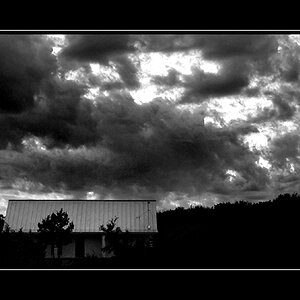
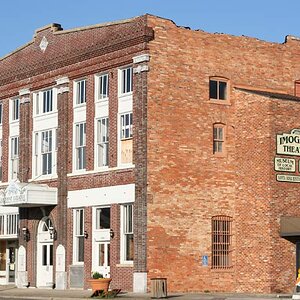
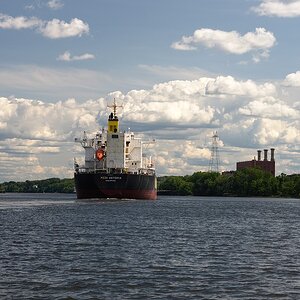
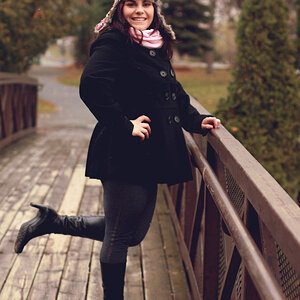
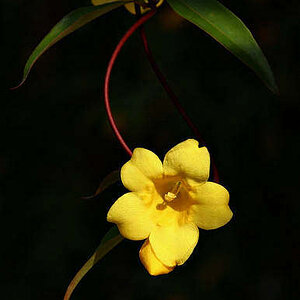
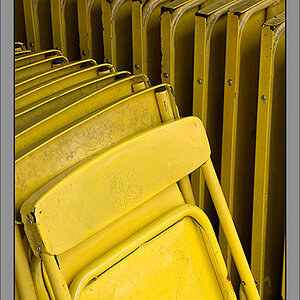
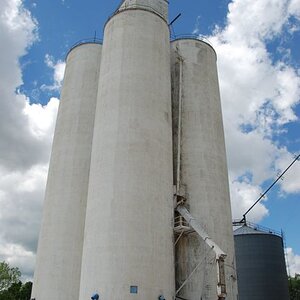
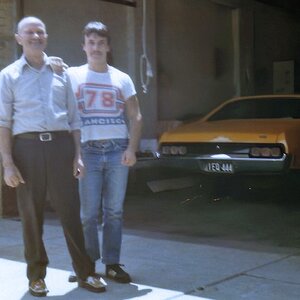
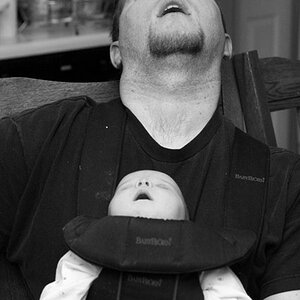
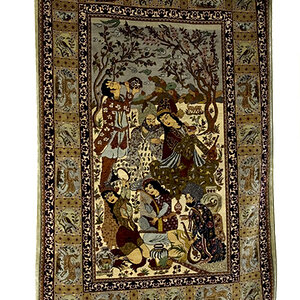
![[No title]](/data/xfmg/thumbnail/42/42281-7e2c2677bdc791ca1918fb67b6b760c5.jpg?1619740089)
![[No title]](/data/xfmg/thumbnail/37/37114-2bba6b6cc4df1fe53588503fb35af8dd.jpg?1619737883)